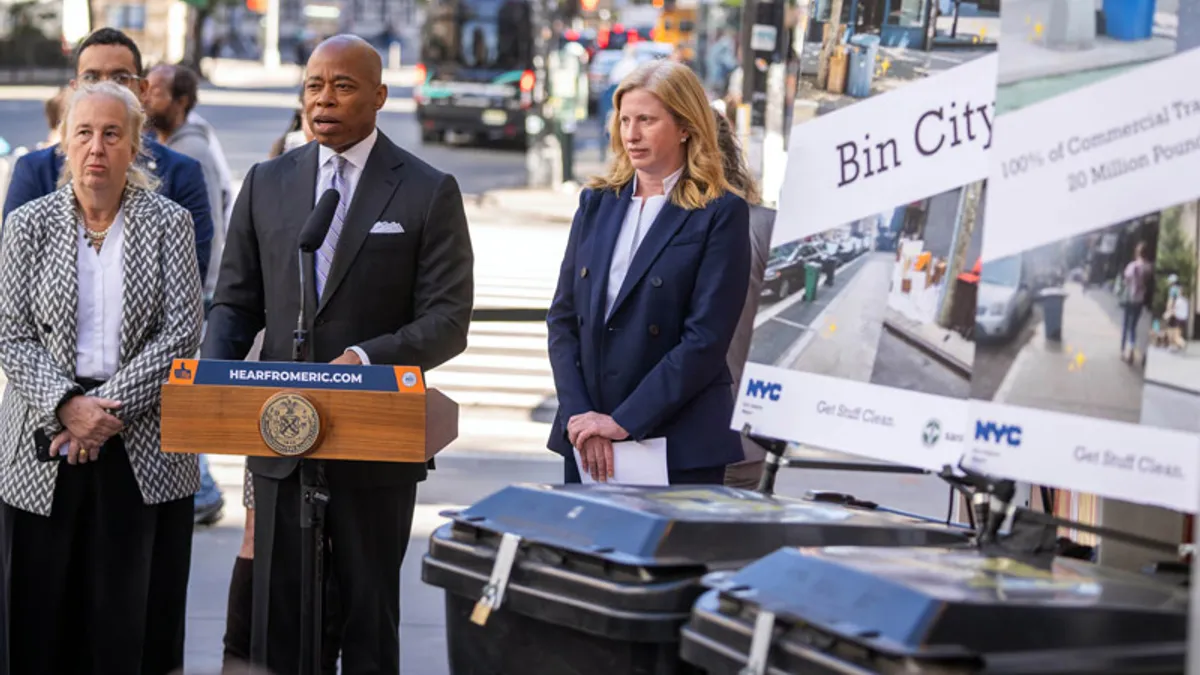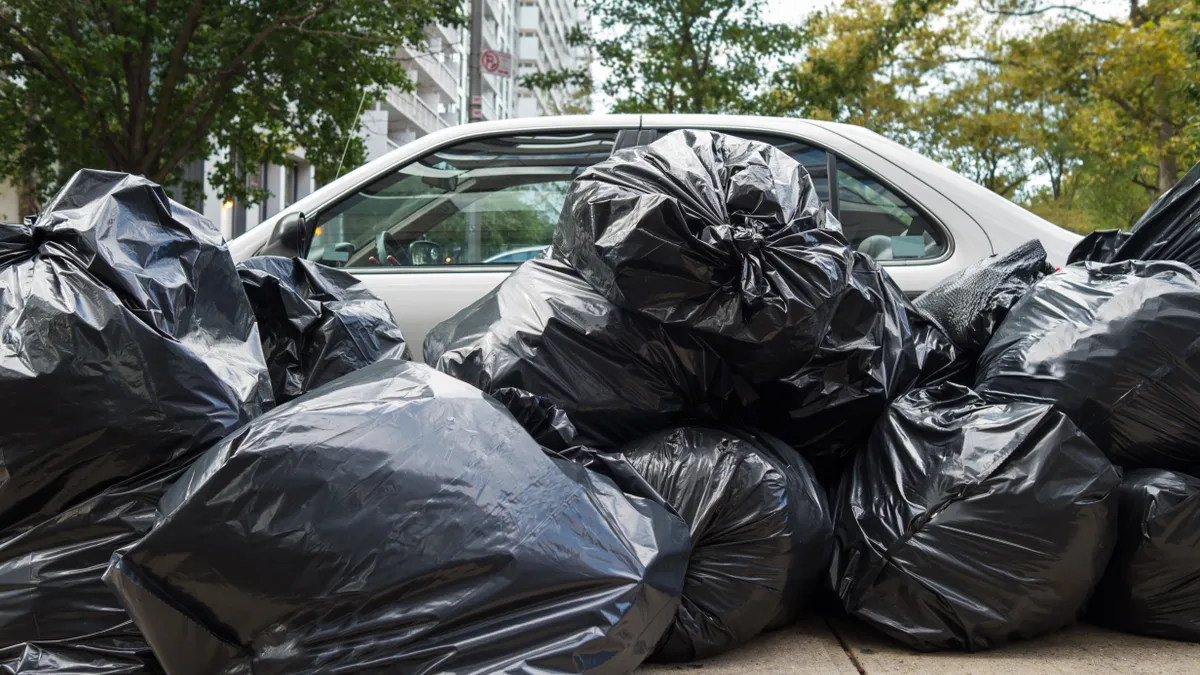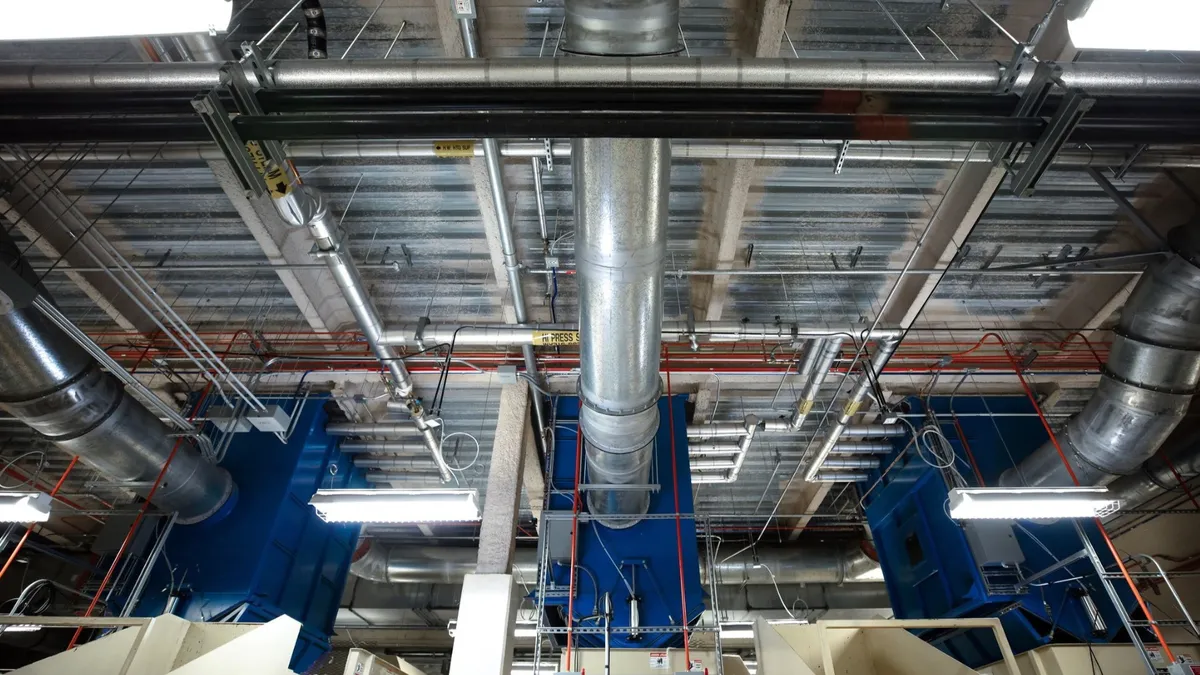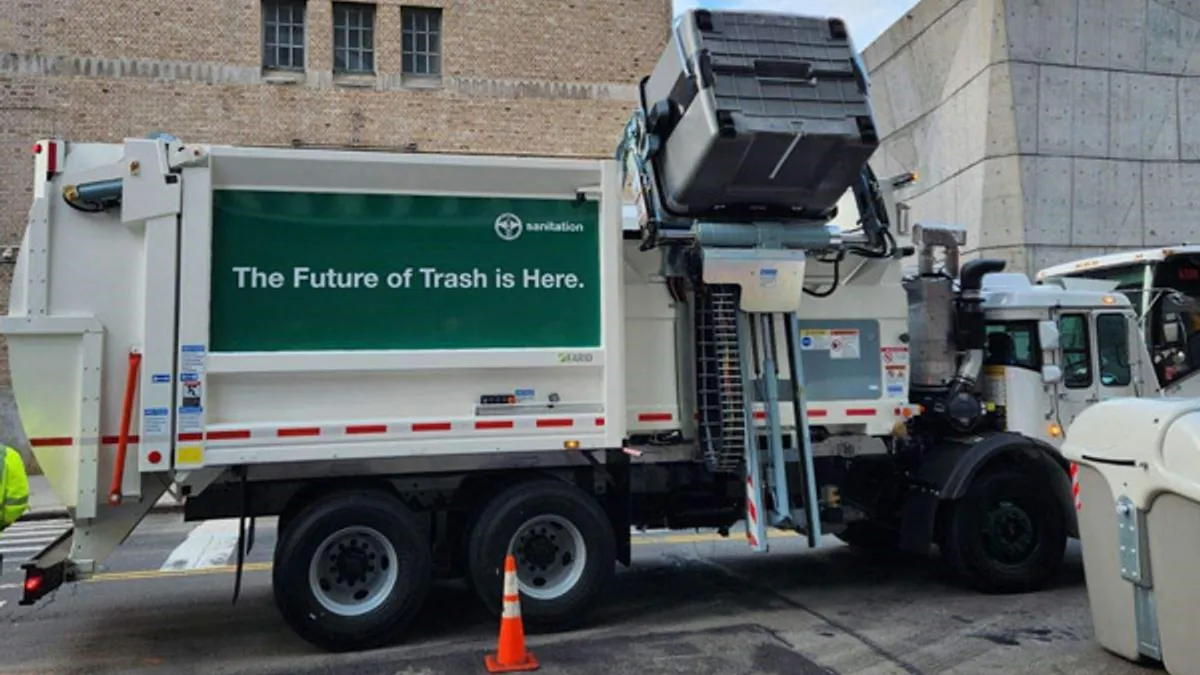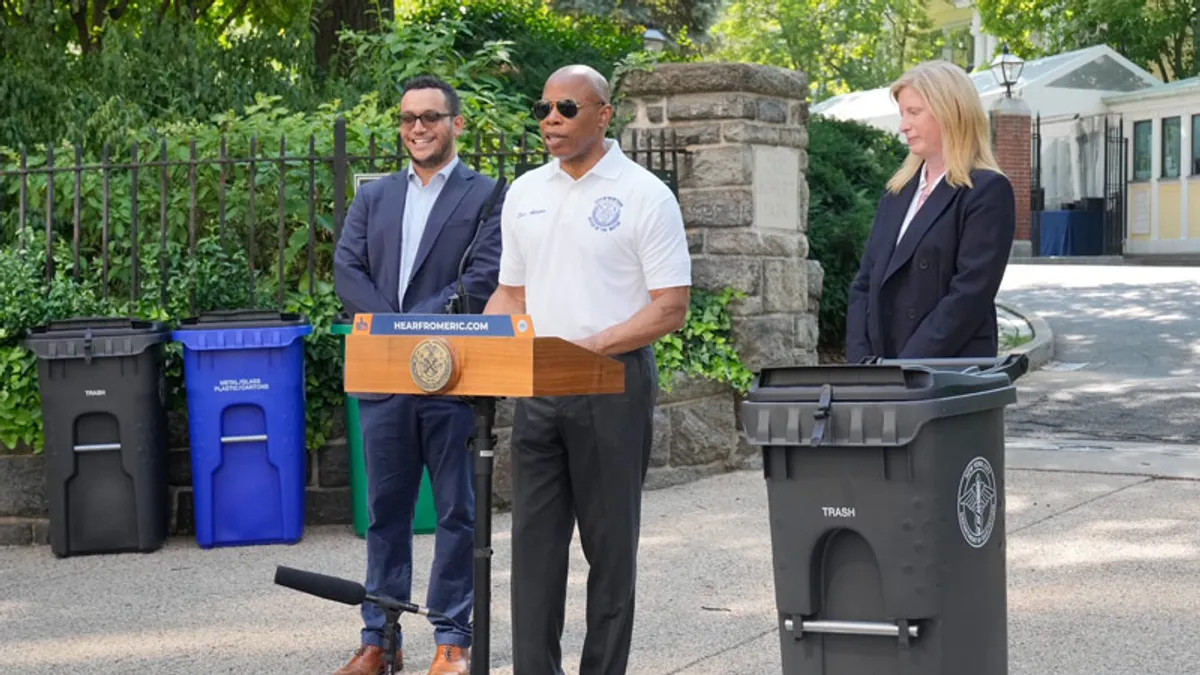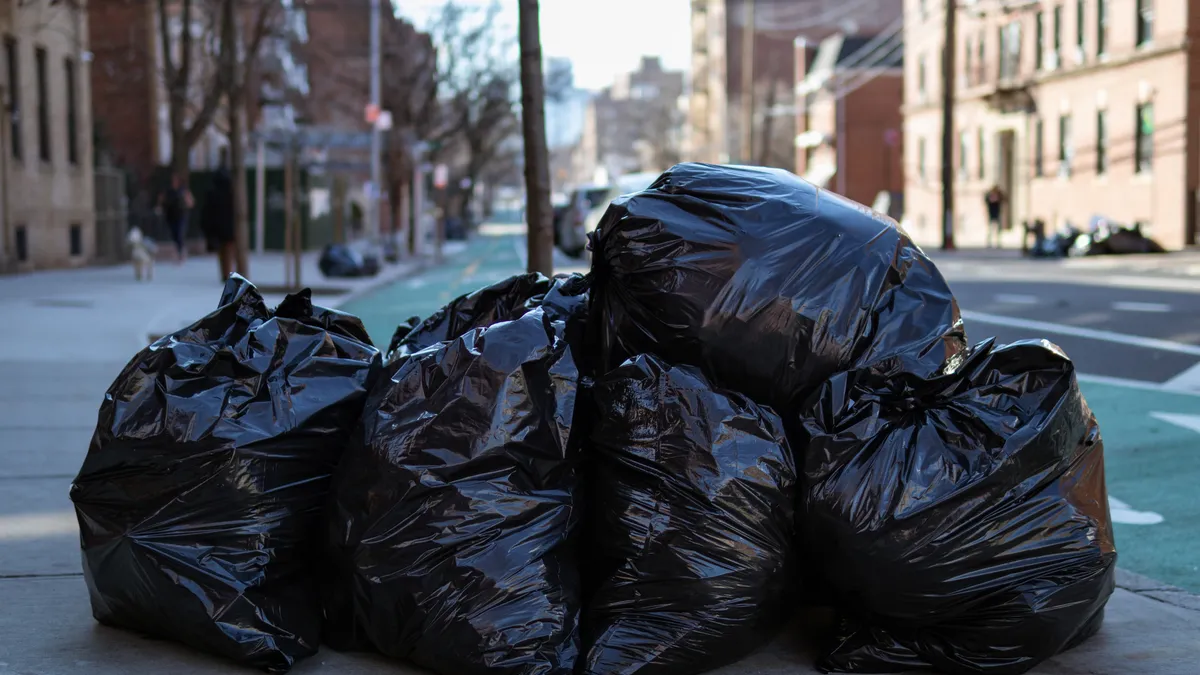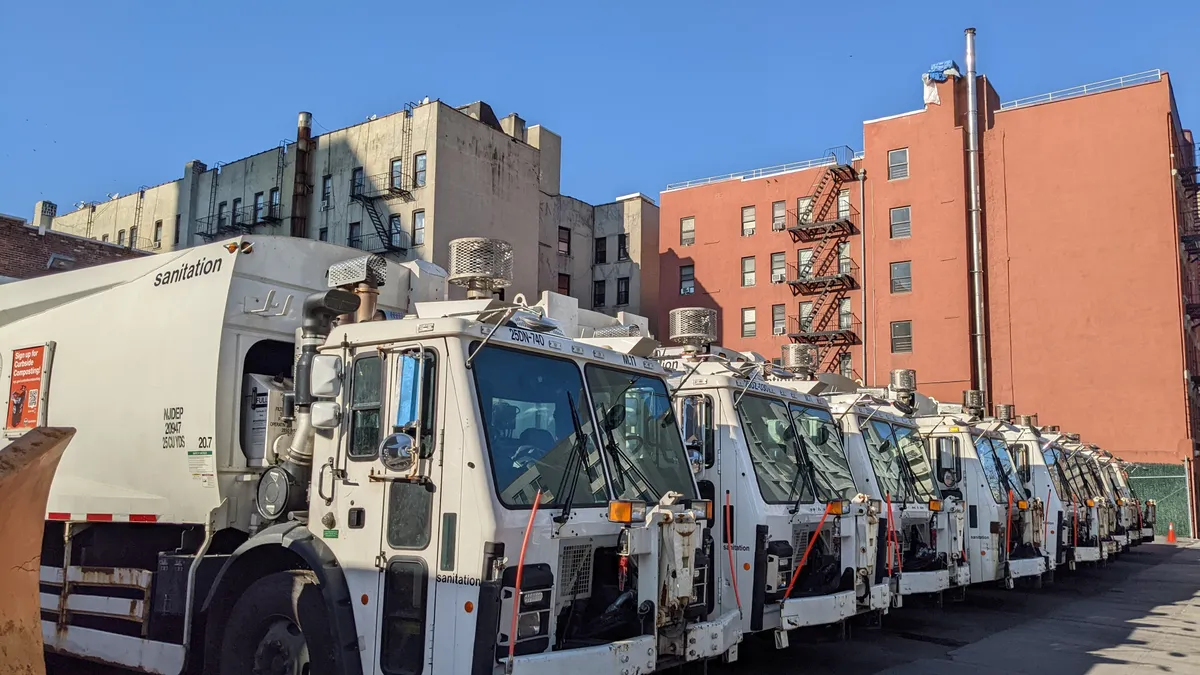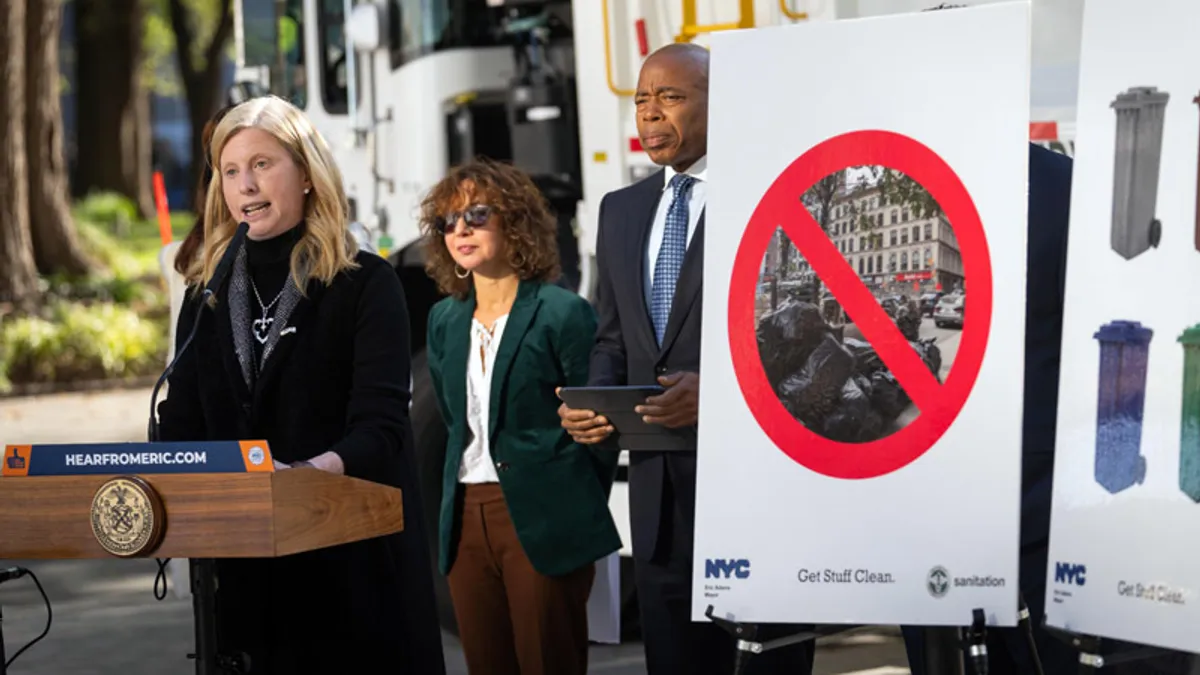Dive Brief:
- New York now aims to require all commercial businesses to containerize their putrescible waste in the latest step of an ongoing effort to mitigate rat issues by reducing the amount of loose trash bags in the city.
- This will lead to the containerization of 20 million pounds per day — accounting for roughly half of the city’s waste. According to officials, recent efforts to require containerization for an estimated 25% of businesses and change set-out times for all businesses led to a 20% decrease in rat complaints during the summer.
- The proposed rule is set to take effect in March 2024, with a one-month warning period before the city’s Department of Sanitation begins enforcement. Businesses are required to use “rigid receptacles with tight-fitting lids.”
Dive Insight:
New York began shifting toward its infamous bag system in the late 1960s, due in part to a sanitation worker strike, and has resisted the containerization trends seen in major cities for many years. Mayor Eric Adams’ administration has a goal to enforce containerization across the vast majority of residential and commercial waste.
During a Tuesday press conference, Adams called the bag system “a relic of the past.” He described rats as the leading “public enemy,” followed by trash bags, and aspired to make New York “the cleanest big city in America.” Sanitation Commissioner Jessica Tisch went on to describe status quo thinking as the “third enemy of the trash evolution” because it has stopped New York from following “steps that have been common around the world for decades.”
DSNY published the proposed containerization rule update on Tuesday, which is scheduled to receive a public hearing on Oct. 24. It builds on recently-enacted rule changes for certain aspects of commercial waste collection. In April, the agency enacted a rule moving the allowable set-out time for commercial waste to 8 p.m. if in bags, or one hour before closing time if using a secured container. In August, it began requiring any food-related businesses to containerize their waste. This month that rule expanded to all chains with five or more locations — including non-food businesses.
DSNY reported issuing 22,000 warnings to covered businesses during a one-month period as well as an uptick in overall enforcement of recycling rules during FY23. It has also utilized social media posts as a form of public pressure on locations of companies such as McDonald’s and Ralph Lauren. At the same time it has also spotlighted compliant businesses, such as a Manhattan location of Gray’s Papaya where the Tuesday press conference was held.
Tisch said the agency aims to give businesses “substantial flexibility on the type and location of containers.” This is not expected to include the option to place larger containers in parking spaces as previously seen with the agency’s Clean Curbs program. The commissioner said “these larger containers you would place in the parking lane would make sense if you could have several businesses placing their trash in the same containers,” but noted the city’s current open market system of private haulers for commercial waste necessitates a more individualized approach.
Sources with knowledge of the city’s private carting operations have reported general acceptance of the containerization shift, but note it has also come with some challenges. The variety of containers used, and the potential for some to be locked to street signs or buildings, has increased time spent at certain stops. Carters who want to try and standardize containers by providing them for a charge may also be limited in doing so for certain customers because of the city’s rate cap.
Meanwhile, Tisch said the agency is still open to using parking spots for shared containers to handle residential waste. DSNY recently started a pilot to do this for 10 blocks and 14 schools in West Harlem, with the goal of eventually pursuing other residential containerization options citywide.



